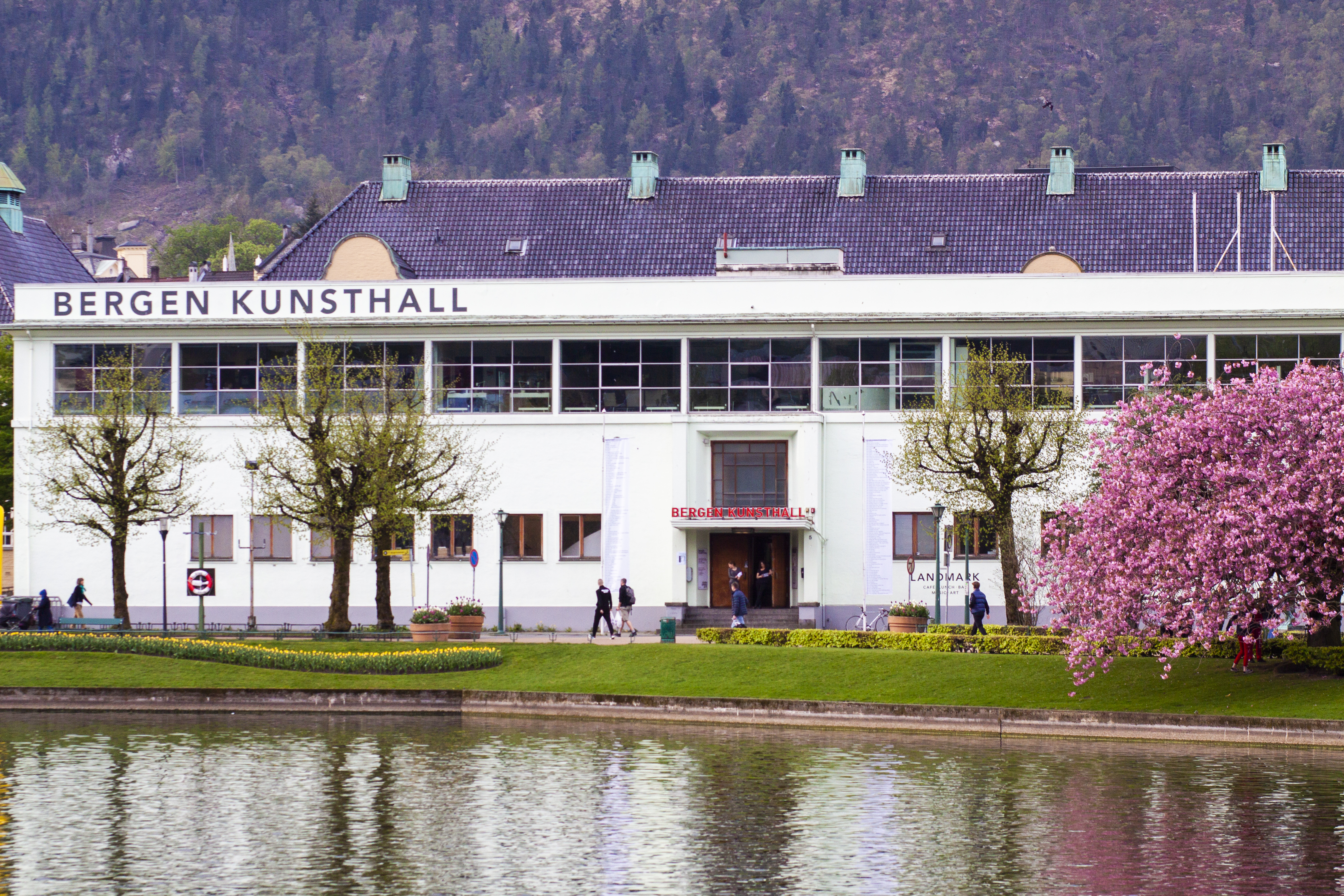Bergen Kunsthall
Since its founding in 1838, Bergen Kunsthall has been a key space for artistic experimentation and for the collective cultural life of the city, with many generations of artists continually reshaping the institution as they’ve set about reimagining art’s role in civic space and the public sphere. For across, with, nearby, the Kunsthall’s activities encompass all of its exhibition spaces as well as its bookshop, while also hosting an extensive programme of events. Foregrounding practices that encourage ways to relate to and learn with others, the Kunsthall becomes a site that connects historical and contemporary approaches to collective work, sharing — as a counterpoint to showing — visual culture, situated and poetic knowledge, and social justice.
A spectrum of engagements takes place across collective action experiments and anti-colonial movements.
These include a retrospective of Gruppe 66’s work including documentation of their situationist methods of co-ritus at Bergen Kunsthall in the 1960s and 1970s, while inviting contemporary artists and collectives (Susan Philipsz, Maasai Mbili Artists Collective, Jakkai Siributr, and Tenthaus Art Collective) to present new co-ritus events inspired by Gruppe 66. Alongside this are Vikrant Bhise’s paintings, which speak from specific sites of caste-based struggle while also acknowledging and connecting to the legacy of the Dalit Panthers. The Singing Wells Archive listening space features an extensive archive of music traditions from East Africa. Broader questions of solidarity are raised in Sajan Mani’s performances, which give voice to marginalised and oppressed communities in India, while AgriForum’s work has established an evolving network of locally rooted practices from India as a way of reflecting on, and learning with, land and community.
Ways of seeing and sharing living, poetic, and relational knowledge across peoples and places are also explored at Bergen Kunsthall.
Ánddir Ivvár Ivvár/Iver Jåks drawings propose a blurring of the lines that separate art from artefact as experienced in Sámi culture, and therefore hold and transmit parallel visual histories, while Kåre Alexander Grundvåg’s earthworks engage local materials and ecologies. A collaboration between Matskogen (food forest) and Gram Art Project explores and shares knowledge of seed, soil, and regenerative practices. Karan Shrestha expands on a 17th-century Newari manuscript to address contemporary water issues in Nepal, connecting past and present environmental concerns.
Practices of care and conscious awareness frame Marcus Coates’s films, which challenge the stigma around mental health and use creative dialogue as a way of learning with others, while Karen Werner’s after-hours broadcasts transform the intimacy of a nightly lullaby into a public ritual of collective listening, afloat on the airwaves. The space of air is similarly conjured by Clara Hastrup’s translation of natural forces into animated anxiety.
Brought together at Bergen Kunsthall, these varied practices create a shared space for revisiting collective experiments, centring marginalised forms of knowledge, and fostering care, dialogue, and responses to urgent social and ecological questions.
Accessibility
Upon arrival, please ring the bell on the left side of the main entrance. A staff member from the reception will assist you in entering the building through a street-level entrance with elevator access (width 130 cm) to the galleries and Landmark Café.
Portable chairs:
Bergen Kunsthall have portable chairs available. Please get in touch with the front-of-house staff.
Service dogs:
Bergen Kunsthall welcome service dogs for every visit, except for club nights at Landmark Café.
Restrooms:
Bergen Kunsthall has gender-neutral restrooms. The restroom with universal design is at Landmark Cafe (Door width 110 cm). It also includes a changing station. More gender-neutral restrooms are in the basement.

What’s on?
No scheduled events
View full programmeWho’s on?
- Gruppe 66,
- Ánddir Ivvár Ivvár / Iver Jåks,
- Marcus Coates,
- Clara Hastrup,
- Karen Werner,
- Sajan Mani,
- Vikrant Bhise,
- AgriForum,
- Kåre Aleksander Grundvåg,
- Matskogen and GramArt Project,
- Karan Shrestha,
- Singing Wells and
- Co-ritus